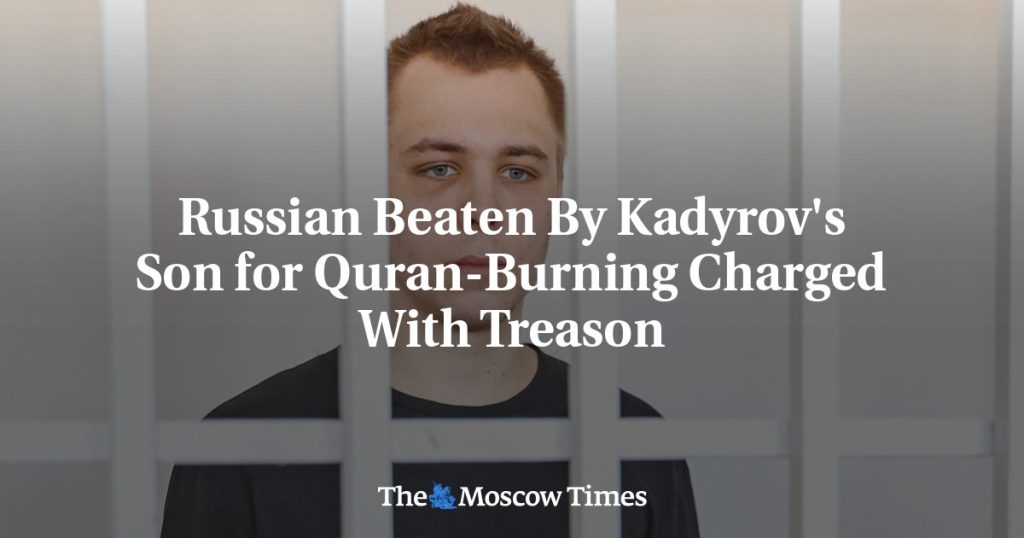A young Russian man named Nikita Zhuravel, who was imprisoned in Chechnya for allegedly burning a Quran, is now facing new charges of “high treason” that could result in a life sentence. Previously, Zhuravel had been sentenced to three-and-a-half years in prison for “offending religious believers” and “hooliganism” after he was accused of burning a Quran outside a mosque in Volgograd. The Volgograd regional Prosecutor’s Office has approved the new charges of “high treason” against Zhuravel, adding to his legal troubles.
Investigators claim that Zhuravel had offered cooperation to a representative of Ukraine’s SBU security service in March 2023. He allegedly sent videos of military equipment, military aircraft, and data on the movement of a Russian military service vehicle. These actions have led to the new charges of “high treason” that could result in a life imprisonment sentence for Zhuravel. In another troubling incident, Zhuravel was assaulted in pre-trial detention by Adam Kadyrov, the son of Chechen leader Ramzan Kadyrov. Despite the assault, Adam Kadyrov faced no consequences and was praised for his actions by his father and other Chechen officials.
Since the assault on Zhuravel, Adam Kadyrov has received multiple awards, including Chechnya’s highest honor, the Order of Akhmat Kadyrov. This situation has raised concerns about the treatment of Zhuravel and the lack of accountability for those who harm him. The Memorial human rights group has recognized Zhuravel as a political prisoner, highlighting the injustice of his situation. The actions taken against Zhuravel, including the assault and the new charges of “high treason”, have sparked outrage and calls for justice from human rights organizations and advocates.
The decision to charge Zhuravel with “high treason” and the lack of consequences for those who have harmed him raise serious questions about the rule of law and human rights in Chechnya. The treatment of Zhuravel, including his initial imprisonment for allegedly burning a Quran and the subsequent assault he faced, reflects a troubling pattern of injustice and abuse of power. The actions taken against Zhuravel have drawn attention to the broader issues of political repression and lack of accountability in the region, leading to calls for justice and the protection of human rights.
Despite facing these challenges, The Moscow Times continues to report on these issues and advocate for independent journalism in Russia. The organization has been designated as “undesirable” by Russia’s Prosecutor General’s Office, putting its staff at risk of prosecution. The Moscow Times refuses to be silenced and is calling on readers for support in their efforts to provide accurate and unbiased reporting on the situation in Russia. By standing with The Moscow Times, individuals can help defend independent journalism and support efforts to shed light on human rights abuses and injustice in the country.


